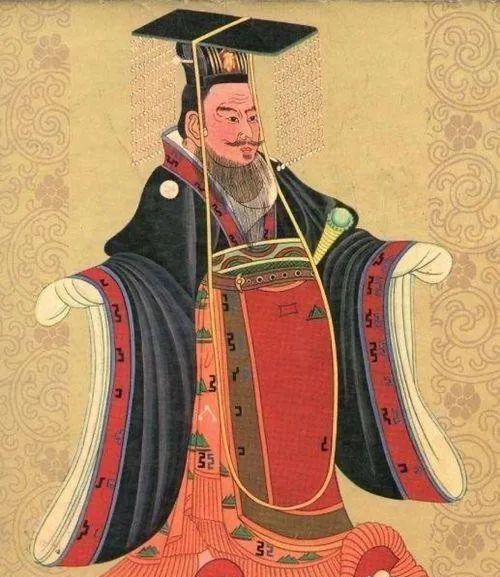As one of the greatest emperors in Chinese history, the great talent of Emperor Liu Che of the Han Dynasty is known to the world. Not only did it double the territory of China, but it also made his national name an eternal name for a great nation, and the reason why the Han became Han was that it was started by Emperor Wu of the Han Dynasty. So today let's take a look at the life of Emperor Wudi of Han.

Biography
Emperor Liu Che of the Han Dynasty (156 BC – 87 BC) was the seventh emperor of the Western Han Dynasty, an outstanding politician, strategist, and poet, born in the first year of the Reign of Emperor Jing of Han (156 BC), who ascended the throne at the age of sixteen, at the age of sixteen, and for now, he is still a child, a child who has entered a period of rebellion. In 141 BC, the sixteen-year-old Liu Che lost his father and ascended the throne. In order to consolidate imperial power, Emperor Wu of the Han Dynasty established the Zhong dynasty, set up a history of thorns at the local level, created a system of inspection and selection of talents, adopted the suggestions of the lord's father, issued a "Tui En Order", solved the power of the kingdom, and took the salt and iron and coinage rights to the central government; culturally adopted Dong Zhongshu's suggestion, "deposing a hundred families, respecting Confucianism alone", and ending the situation of "different teachers and different ways, different theories of people, and a hundred different families" since the pre-Qin Dynasty.
Suspicious in later years
Emperor Liu Che of the Han Dynasty ascended the throne in 140 BC and died in 87 BC, reigning for fifty-four years. The early and middle periods of his reign belonged to the heyday of the Han Dynasty, with a unified country, a stable political situation, a strong economy, and a clear political lucidity. However, in his later years, the sage monarch's ability to govern gradually began to decline. In his later years, Emperor Wudi of the Han Dynasty became more and more superstitious about ghosts and gods, and spent all day seeking immortals and practicing Dan, acting absurdly. He organized many wizards and warlocks to build buildings and alchemy medicines, hoping that he would be able to live forever.
The Curse of witchcraft
Emperor Wudi of Han was bent on immortality, and when he heard that someone had cursed him, he was very angry, and the consequences were very serious. "Whoever catches a witch is the head of the thief." Kill hundreds of concubines, palace maidens, ministers. The fuse for The Crown Prince Liu's involvement in the "Scourge of the Witches" was the "Gongsun He Incident".
Force the son to die
Emperor Wu of Han was in a trance in old age, and one day he took a nap and dreamed that thousands of wooden people beat themselves with wooden sticks, and after waking up, they felt unwell. In fact, there are thoughts in the day and dreams at night. Emperor Wudi of Han had always been troubled by the Witch Deception Incident and had doubts in his heart, so he would have such a dream. Jiang Chong told Emperor Wu of Han that someone must be engaged in witchcraft and cursing the emperor. Emperor Wu of Han sent people to investigate thoroughly, the crown prince Liu Zhao was framed by others, hid unsuccessfully, and leaked his whereabouts, and the magistrate secretly followed him to Liu Zhao's residence and surrounded Liu Zhao's party, Liu Zhao was humiliated, hanged himself, and his two sons were also killed, which is a very famous "witch rebellion" in history, implicated in tens of thousands of deaths.
The crown prince Liu Was kind and gentle, and had been diligent and earnest during his lifetime, but in the end he died because of the unwanted witch. Emperor Liu Che of the Han Dynasty has always been insightful, wise and decisive, and has made contributions of epochal significance to the reunification of the country and the tranquility of the frontier, but in the face of power, he lost his mind, and the scourge of witchcraft became a stain on his later years.